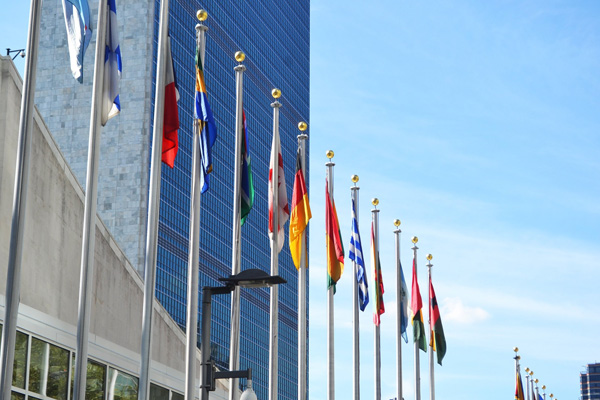2025 UN high-level meeting redefines global health priorities

[The United Nations. Photo Credit to Pixabay]
When world leaders gathered in New York on September 25, 2025, they were not confronting a viral outbreak but a slower and far deadlier crisis: the worldwide rise of noncommunicable diseases and mental health disorders.
The Fourth High-Level Meeting of the United Nations General Assembly became a milestone in redefining global health priorities for the decade ahead.
In 2021, an estimated 43 million people died from noncommunicable diseases, including heart disease, cancer, diabetes, and chronic respiratory illnesses.
Roughly 18 million of those deaths occurred before the age of seventy, according to the World Health Organization (WHO).
Meanwhile, over one billion people live with mental health conditions, and suicide is the third leading cause of death among those aged fifteen to twenty-nine.
These numbers reveal how modern lifestyles, inequality, and social stress combine into what WHO Director General Tedros Adhanom Ghebreyesus described as “silent killers.”
At the meeting, delegates adopted a new Political Declaration committing every nation to achieve three measurable goals by 2030: 150 million fewer tobacco users, 150 million more people with controlled hypertension, and 150 million more individuals with access to mental health care.
This “Triple 150 Million Targets” plan reflects a strategic shift from reacting to disease toward building prevention and resilience.
Delegates repeatedly emphasized that health and equity are inseparable.
Women make up nearly seventy percent of the global health workforce yet still face barriers to early diagnosis and treatment.
Small Island Developing States record some of the world’s highest obesity rates and are severely affected by climate-driven food insecurity.
The Declaration therefore urges governments to improve air quality, expand safe public spaces for exercise, ensure healthy food availability, and promote fair working conditions, reminding countries that genuine health policy begins outside the hospital.
For the first time, mental health stood at the center of a United Nations high-level meeting.
Member States pledged to decriminalize suicide attempts, enhance school counseling services, and promote responsible reporting on self-harm.
The meeting also celebrated the potential of artificial-intelligence-based diagnostics, telemedicine, and mobile health tools to extend care to remote communities.
Yet, leaders warned that without equal digital access, these innovations could widen existing inequalities.
“Digital health can empower millions,” Dr. Tedros noted in his closing remarks, “but only if technology serves everyone, not just those who can afford it.”
Financing emerged as a central concern.
The Declaration calls on governments to invest in primary health care and to introduce financial protection systems so that medical costs do not drive families into poverty.
According to WHO, investing one dollar per person annually in cost-effective interventions for noncommunicable diseases could generate a return of up to seven US dollars and result in approximately 230 billion US dollars in economic benefits by 2030.
Beyond state action, the Declaration highlights the vital role of civil society, educators, and young activists in promoting healthy lifestyles and fighting stigma.
Dr. Tedros reminded participants that health does not begin in hospitals but in homes, schools, and communities.
Around the world, youth groups and local organizations are already turning this vision into practice through health education and community service.
By linking health to climate, gender, and digital equity, the Fourth High-Level Meeting transformed a technical agenda into a moral commitment.
Its future success will depend on whether nations convert words into budgets and promises into care.
For younger generations, this gathering represents more than another diplomatic event; it is a promise that health will be treated as a universal right, not a privilege.
If countries honor that promise, 2030 could be remembered as the year humanity began reversing the tide of diseases born from its own progress.

- Esther Kim / Grade 11 Session 11
- Lexington High School

![THE HERALD STUDENT REPORTERS [US]](/assets/images/logo_student_us.png)
![THE HERALD STUDENT REPORTERS [Canada]](/assets/images/logo_student_ca.png)
